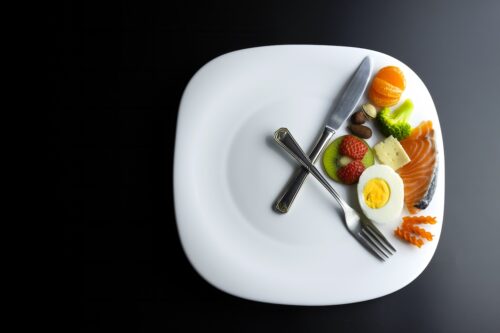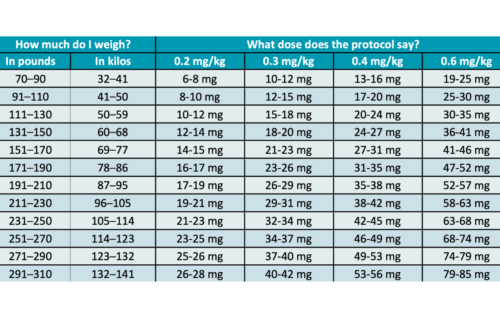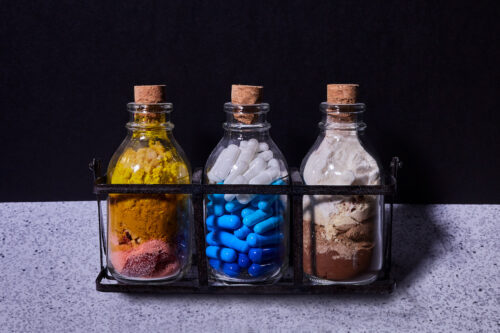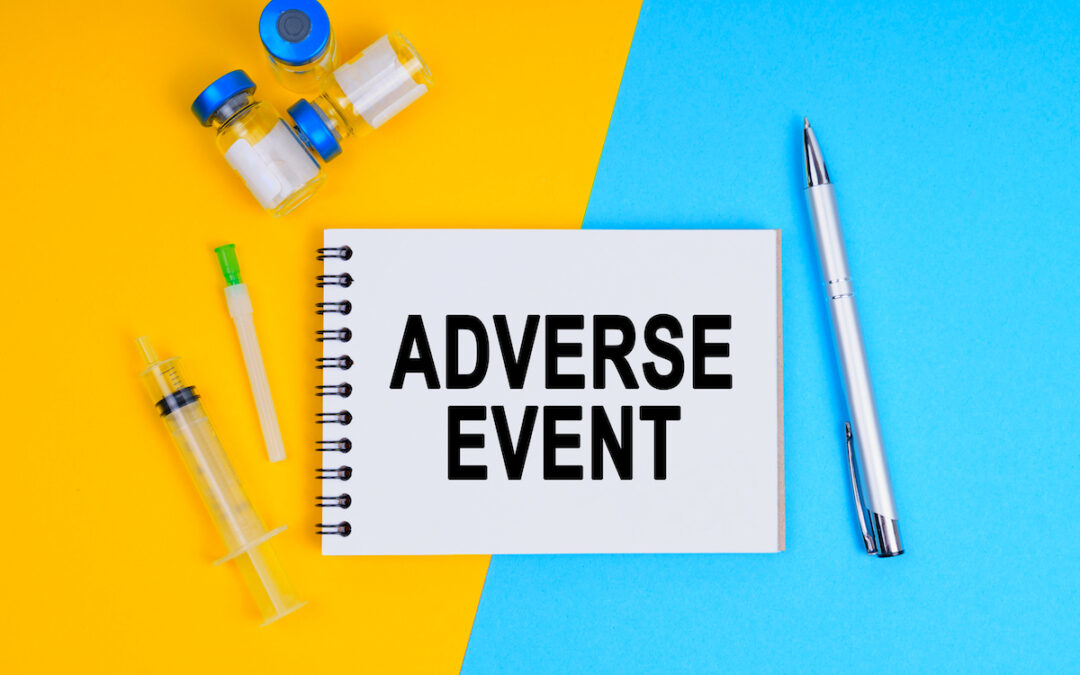Research is now showing that COVID-19 “vaccines” can have a negative impact on the human body and bring unwelcome side effects. Millions have suffered adverse events post-inoculation and thousands have died. Even if vaccination occurred as a result of the coercion of mandates or just compliance due to a lack of information and trust of health officials and mainstream media, we now have to figure out how to deal with the adverse events of these mRNA shots.
First-Line Therapies to Deal with COVID-19 Shots’ Adverse Events
If you haven’t felt like yourself after taking the shot or have been seriously harmed by it, you could implement activities, nutraceuticals, and drugs to decrease symptom severity. First-line therapies can help you deal with COVID-19 shots’ adverse events. Just make sure to avoid more shots of any type and prevent getting COVID-19 since additional spike protein can exacerbate symptoms.
These therapies are equally helpful for those experiencing long-haul COVID (COVID-19 symptoms post-infection). People with long COVID can experience breathing issues, and loss of smell or taste, as well as neurologic and cognitive problems.
The following is a summary of the FLCCC Alliance Post-Vaccine Treatment Protocol. This protocol was generated by world-renowned physicians (Dr. Pierre Kory, Dr. Paul Marik, Dr. Keith Berkowitz, Dr. Flavio Cadegiani, Dr. Suzanne Gazda, Dr. Meryl Nass, Dr. Tina Peers, Dr. Robin Rose, Dr. Yusuf Saleeby, Dr. Eugene Shippen, Dr. Mobeen Syed, and Dr. Fred Wagshul) and is restoring health post-inoculation. Consult a healthcare provider before starting new treatments.
Nutrition
It is well known that people who have nutritional deficiencies have weaker immune systems and increased susceptibility to illness. Choline, vitamins E and K, magnesium, calcium, vitamins A and C, omega-3 fatty acids, and zinc are the other most common deficiencies in Americans.
A study of COVID-19 hospitalized patients showed that 76% of the patients were deficient in vitamin D and 42% in selenium. Malnutrition not only makes people more susceptible to illness and infection, but it also makes their immune systems more reactive after vaccination.
Nutrient-dense foods should be an integral part of your diet to keep your body healthy. You should also add foods with antiviral and immune-boosting properties. Some of these powerful foods are black caraway, garlic, licorice root, cinnamon, black pepper, mushrooms, moringa, yogurt/kefir, honey, and spirulina.
Fasting

At the same time, fasting is highly beneficial in dealing with COVID-19 shots’ adverse events. Abstaining from food gives your digestive system a break since your body uses a lot of energy to digest food. During fasting, this energy gets allocated for other uses. The body scrubs and removes unhealthy and dead cells (autophagy), damaged mitochondria, foreign proteins, fatty deposits, and even tumors, expelling them as waste. Besides having a detoxing and rejuvenating effect, fasting helps restore the functionality of the immune system and metabolic processes, improving healing.
Research also shows that fasting can activate cellular responses which improve glucose regulation, increase resistance to stress, and suppress inflammation. Fasting helps fight metabolic and oxidative stress, remove damaged cells, and strengthen the immune system against infections. In addition, fasting helps remove intercellular spike protein.
There are different ways to incorporate fasting or intermittent fasting into your life – Just make sure to stay well hydrated:
- You can start by fasting for 14 hours, 4-5 days a week. So if you stop eating at 8:00 pm, your next meal will be at 10:00 am.
- Then, you can fast for 16 hours, 5-6 days a week. So if you stop eating at 8:00 pm, your next meal will be at noon.
- Later on, you can fast for 20 hours. So if you stop eating at 8:00 pm, your next meal will be at 4:00 pm.
- You can also fast continuously for 36 to 48 hours.
- If you are decreasing your caloric intake, eat normally for 5 days and fast for 2 days by restricting your calories to 500-1000 per day.
It’s important to consider that some pharmaceuticals hinder fasting mechanisms. For instance, chloroquine and hydroxychloroquine can interfere with fasting since they interfere with the autophagy process and alkalize lysosomes.
Proton pump inhibitors (Prevacid, Prilosec, Protonix, Nexium) should also be avoided as they prevent the acidification of lysosomes and block autophagy. Studies show that those suffering from gastroesophageal reflux disease (GERD) and other gastrointestinal conditions can benefit from drinking aloe vera juice and water with a tsp of apple cider vinegar instead.
Keep in mind that fasting is contraindicated for youngsters, pregnant women, and breastfeeding mothers. Those with serious medical conditions and diabetics should follow specific fasting recommendations.
Gut Health
Gut health, the status of your microbiome (the bacteria in the gastrointestinal tract), is not only essential for gastrointestinal health but for immune function and inflammation regulation. The gut is involved in nutrient absorption, detoxification, and mood regulation as well.
Research shows that those who developed worse cases of COVID-19 were those over 65 years of age and those with comorbidities, which also had unhealthy microbiomes. An unhealthy gut is another risk factor for those contracting the virus. However, microbiome-targeting therapy with oral probiotics improves gut health, has antiviral effects, and prevents COVID-19 deterioration.
A study of COVID-19 patients showed that probiotic supplementation interacts with the host’s immune system. It reduced nasopharyngeal viral load and lung congestion, and significantly increased specific IgM and IgG against SARS-CoV2 compared to placebo.
You can improve the good-to-bad bacterial ratio and gut health by regularly eating organic vegetables and fruits, fermented foods and drinks, and supplementing with a probiotics/ prebiotic blend. Look for probiotics without added sugar, gluten, casein, or soy, and with more than one strain of lactobacillus and bifidobacteria.
Physical Activity Caution
Research has shown that some patients with long COVID and post-shot symptoms present worsening symptoms with exercise, severe post-exertional fatigue, and breathlessness. Patients also show lung, heart, liver, kidney, and brain abnormalities on MRIs, as well as impaired cognitive performance.
It is recommended that these people moderate their physical activity and keep their heart rate under 110 BPM. After identifying the activity level that worsens their symptoms, they should stay below that. It’s better to engage in stretching and low-level resistance training over aerobic activity.
Ivermectin
Ivermectin was one of the drugs restricted during the pandemic despite being around for decades due to its high efficacy and safety profile. Studies show that ivermectin accelerates clinical resolution in hospitalized COVID-19 patients. This powerful anti-inflammatory binds to the spike protein and inhibits the proliferation of SARS-CoV-2. Ivermectin and intermittent fasting act synergistically to rid the body of the spike protein.
?? Ivermectin is best taken with or just following a meal for greater absorption. Yet, it can interact with quercetin – so these two should not be taken at the same time. Take 0.2-0.3 mg/kg, daily for up to 4-6 weeks.

Low-Dose Naltrexone (LDN)
Naltrexone is a medication used to treat opioid and alcohol use disorders. However, research shows its positive results in treating multiple sclerosis, pain syndromes, fibromyalgia, cancer, and gastrointestinal and skin conditions. LDN has anti-inflammatory, analgesic, and neuromodulating properties.
?? Begin with 1 mg/day and increase to 4.5 mg/day, as required. May take 2 to 3 months to see the full effect.
Methylene Blue
Methylene Blue (MB) is a salt with numerous therapeutic effects. Research shows that MB has positive results in treating malaria, methemoglobinemia, and carbon monoxide poisoning.
It promotes mitochondrial activity while mitigating oxidative stress and neuroinflammation. It has shown efficacy in people with strokes, global cerebral ischemia, Alzheimer’s disease, Parkinson’s disease, and traumatic brain injury. It has anti-inflammatory, antioxidant, and antiviral properties, being beneficial for vaccine-injured patients.
Low Dose Methylene Blue (LDMB) is a therapeutic option in patients with brain fog and other neurological symptoms. A 1% methylene blue solution contains 10 mg MB in 1 ml solution -1 drop of 1% solution is approximately 0.5 mg of methylene blue.
?? In the first week, take 5 mg (10 drops) of Methylene Blue twice daily. Then gradually increase the dosage every 2-3 days until you reach a maximum of 30 mg (30 drops) twice daily. Take the 7th day off every week to allow the body to “reset”.
* Some patients may experience a Herx reaction (fatigue, nausea, headache, or muscle pain). Stop the protocol for 48 hours if you experience this, and resume slowly.
Melatonin
This hormone is made by the body and regulates sleep-wake cycles. Research shows that melatonin is effective against SARS-CoV-2 infection. It regulates mitochondrial function and inhibits the activity of the proteins Mpro and MMP9. It also has anti-inflammatory, antioxidant, and immunomodulatory properties.
?? You can start by taking 750 mcg (μg) to 1 mg of melatonin at night. You can increase it to 2-6 mg before bedtime or as tolerated.
Resveratrol
This naturally-occurring phytochemical increases autophagy. Resveratrol binds to the spike protein, helping the body remove it faster. Research shows that resveratrol mitigates the pathogenesis of SARS-CoV-2, inhibits its replication, and stimulates the immune system. Resveratrol is antiviral and has cardioprotective properties.
?? For people with acute symptoms, taking 500 mg resveratrol twice daily is
suggested. For preventative/maintenance therapy, a dose of 400/500 mg daily is enough.
* Resveratrol has a more synergistic effect when taken with spermidine. Its oral bioavailability is poor so bio-enhanced formulations from Japanese knotweed root seem to be more bioavailable.
Spermidine
This naturally occurring polyamine compound is found in ribosomes and living tissues and has various metabolic functions. Spermidine has been shown to prolong lifespan and reduce all-cause mortality.
Studies show that it has prominent cardioprotective and neuroprotective effects, as well as anti-inflammatory properties. Spermidine augments autophagy. It’s found in wheatgerm, aged cheese, mushrooms, chickpeas, green peas, cauliflower, broccoli, grapefruit, apples, and mango. Since cancer cells have dysregulated polyamine metabolisms, spermidine should be avoided in cancer patients.
?? Take 1000-2000 mg of spermidine /wheat germ extract daily.
Sunlight and Photobiomodulation

Another way how to deal with COVID-19 shots’ adverse events is with daily sun exposure, which has tremendous health benefits. Not only that but studies show that all-cause mortality is inversely related to sun exposure. The mortality rate of people who avoid the sun is approximately two-fold higher compared to that of those with the highest sun exposure.
On the same note, photobiomodulation (PBM) or low-level light therapy, such as red light therapy, and near-infrared light therapy, stimulates the mitochondria, increases ATP production, reduces inflammation, activates heat shock protein production, and cell stress survival pathways. PBM is beneficial for those with stroke, traumatic brain injury, Alzheimer’s disease, Parkinson’s disease, and depression.
Research shows that besides being safe & effective for inflammatory conditions, pain, tissue healing, and cellular energy, PBM helps to alter the gut microbiome and can play a role in the prevention and treatment of COVID-19.
?? Try exposing yourself to 30 mins of midday sunshine at least 3 times a week. If that’s not possible, try light therapy, and near-infrared light therapy from LED panels.
Aspirin
Aspirin has an antiplatelet effect, decreasing the ability of blood clots to form by interfering with the platelet activation process. These effects are achieved by
daily doses of 75 mg (and higher). A meta-analysis shows that the use of aspirin is significantly associated with a reduced risk of mortality among patients with COVID-19.
?? Take 81 mg of aspirin a day.
Adjunctive Therapies to Deal with COVID-19 Shots’ Adverse Events
Adjunctive therapies can also help you to deal with COVID-19 shots’ adverse events. They can be incorporated for added benefit and faster recovery.

Magnesium
Magnesium (Mg) is the fourth most abundant body mineral and it’s found in bones, tissues, organs, and even in the blood. It is required for normal nerve and muscle function, heart rhythm, and healthy skeletal and immune systems. Magnesium’s excellent for many conditions such as asthma, migraines, hypertension, coronary heart disease, constipation, and diabetes.
There are different types of magnesium:
- Organic salts of Mg are more soluble and bioavailable than inorganic salts.
- Magnesium citrate is used to treat constipation but high doses may cause diarrhea and shouldn’t be used for prolonged periods.
- Magnesium oxide and magnesium citrate are generally prescribed by physicians but have poor bioavailability.
- Magnesium Malate, Taurate, Glycinate, and L-threonate have good bioavailability and increase RBC magnesium levels. Magnesium taurate and magnesium L-threonate significantly increase magnesium levels in brain cells – these types are great for people dealing with depression and Alzheimer’s.
?? Start with a dose of 100 to 200 mg of Magnesium taurate or magnesium L-threonate per day. Increase the dose to 300 mg (females) to 400 mg daily – as tolerated.
* Your red blood cell (RBC) magnesium lab test should be on the higher end, about 6.0 mg/dL, of the normal range (between 4.0 and 6.8 mg/dL).
N-Acetyl Cysteine
N-Acetyl Cysteine (NAC) is the precursor of glutathione (GSH). GSH is one of the most important antioxidants in the body that prevents cell damage, detoxes cells, chelates heavy metals, and slows down the aging process. NAC penetrates cells and promotes glutathione synthesis.
NAC has anti-inflammatory and immunomodulating properties, helping treat vaccine injuries, COVID‐19, and influenza‐like illnesses. Research shows that it thins out mucus, combats acetaminophen intoxication, and hampers penetration of SARS‐CoV‐2 into cells.
Oral glutathione is poorly absorbed but acetyl glutathione is protected from degradation, oxidation, and breakdown in the digestive tract, rapidly raising intracellular GSH levels.
?? Combine 600-1500 mg/day of acetyl glutathione and NAC to enhance the bioavailability of glutathione. You can also incorporate vitamin C for an added synergistic effect.
Cardio Miracle™
Cardio Miracle™ is a supplement that increases nitric oxide (NO) production. The supplement contains L-arginine, L-citrulline, beetroot, L-Ornithine, CoQ10, and
a fruit/vegetable nutrient blend.
NO transmits chemical signals which induce physiological or biochemical changes in the body. It’s important for vasodilation (widening of blood vessels), endothelial function (function of the cells that make layers of the blood and lymphatic vessels), blood flow, combating microbes, and the regulation of the reproductive system and programmed cell death (apoptosis). NO lowers inflammation and oxidative stress.
The spike protein and COVID-19 infection downregulate nitric oxide synthase (eNOS) activity and are associated with low plasma L-arginine levels (important for normal T-cell function). NO deficiency causes endothelial dysfunction, thrombotic events, and inflammatory effects. Therefore, increasing NO production is beneficial for cardiovascular and brain health, inflammation management, detoxing, and immune support.
* One thing to keep in mind is that L-arginine should be avoided in cancer patients.
Omega-3 Fatty Acids
Omega-3 fatty acids play an integral role in cell membrane function, as well as brain and eye health. They also have a positive effect on cardiovascular health, behavioral problems, depression, and inflammatory conditions, such as rheumatoid arthritis.
Research shows that omega-3 fatty acids are beneficial in fighting COVID-19 and influenza. These have antimicrobial, anti-inflammatory, and cardio and vasculoprotective effects, improving endothelial function, reducing thrombosis and vascular inflammation, and limiting reactive oxygen species production. They activate the immune system, reducing the hosts’ production of proinflammatory cytokines, stimulating T cells’ ingestion of damaged cells, and bacterial killing.
?? Start with 1 g of high-quality fish oil with EPA/DHA or cod liver oil per day. Increase up to 4 g/day. Also, try to consume Wild Atlantic or Alaskan salmon at least once per week.
Nigella Sativa (Black Seed/ Black Caraway)
Nigella sativa has antiviral, antibacterial, anti-inflammatory, antioxidant, and immunomodulatory properties. It can serve as a natural substitute for chloroquine as it contains thymoquinone, dithymoquinone, thymohydroquinone, and nigellimine.
Research shows that black seed blocks the entry of the virus into pneumocytes, enhances immune responses against viruses, and inhibits the replication of SARS-CoV-2. A study showed that black seed resulted in ~50% reduction in time taken to alleviate symptoms and clear the virus compared to a placebo group.
?? Take 200-500 mg of black seed oil twice daily.
Keep in mind that thymohydroquinone decreases the absorption of cyclosporine and phenytoin so patients taking these drugs should avoid taking Nigella sativa.
Vitamin C
Vitamin C has antiviral and antioxidant properties that protect cells against free radicals. It helps detox, repair, and rebuild internal damage. It helps immune cells to attack pathogens, clears old immune cells, and promotes the growth of good bacteria.
Research shows that vitamin c has a beneficial effect on patients with COVID-19, improving oxygenation and pulmonary function, reducing inflammatory markers and temperature, decreasing days in ICU and hospital, and decreasing mortality.
?? Supplement with 1000 mg of vitamin C 2-3 times a day. Additionally, intravenous vitamin C is helpful. The initial dose should be between 7.5-15 g per day and 25 g weekly.
* Be mindful that high-dose IV vitamin C should be given slowly over 2-4 hours and that chronic high doses have been associated with the development of kidney stones, so the duration of therapy should be limited.
Vitamin D
Vitamin D helps control infections, absorb and retain calcium and phosphorus, and increase the effectiveness of monocytes and macrophages that fight pathogens. It reduces inflammatory cytokines, proinflammatory cells, and cancer cell growth. Plus, it’s great for detoxification too.
Research shows that vitamin D can reduce the incidences of influenza and COVID-19 and the intensity and length of symptoms. It helps lower viral replication rates, reduce concentrations of pro-inflammatory cytokines, and increase concentrations of anti-inflammatory cytokines.
?? Take 4000-5000 units of vitamin D along with 100 mcg of vitamin K2 per day (or a complex vitamin D with Vitamin K2) for better absorption. Magnesium can be added to help activate vitamin D.
Zinc
This trace mineral is involved in DNA creation, cell growth, protein building, and tissue healing. It is antioxidant and anti-inflammatory, helping to decrease oxidative stress and infection. Studies show that zinc, combined with nigella sativa, improves innate and adaptive immunity in the course of infections, either viral or bacterial.
Research shows that zinc has antiviral and immunomodulating properties. It helps inhibit RNA viruses, including coronavirus, poliovirus, and influenza and protects the cells and tissues from oxidative damage and dysfunction. Furthermore, studies show that zinc supplementation improves mucus clearance, decreases viral replication, lowers the risk of hyper-inflammation, and reduces lung damage, benefiting people with SARS-CoV-2.
There are several types of zinc:
- Zinc gluconate. Is one of the most common OTC forms, found in cold remedies and lozenges.
- Zinc acetate. Is commonly added to cold lozenges too.
- Zinc sulfate. Besides helping prevent zinc deficiency, it helps reduce acne.
- Zinc picolinate. This may be a more absorbable form of zinc.
- Zinc orotate. This one is combined with orotic acid and is one of the most common types of supplements.
- Zinc citrate. It’s less bitter than zinc gluconate.
?? Take 40 mg of zinc twice daily.
Fluvoxamine
Fluvoxamine is a selective serotonin reuptake inhibitor (SSRI) used for the treatment of depression, obsessive-compulsive disorder, and anxiety disorders. Studies show that fluvoxamine also seems to reduce clinical deterioration in COVID-19 patients due to its anti-inflammatory and anti‐viral properties.
?? Start on a dose of 12.5 mg/day and increase slowly as tolerated. Take 50 mg twice daily.
Some people who are prescribed fluvoxamine experience acute anxiety and need to be carefully monitored to prevent the rare escalation to suicidal or violent behavior.
Spike Recovery Formula
The Wellness Company (TWC) created a formula to help moderate or remove the toxic effects of the spike protein, whether vaccine or virus-induced. Dr. Peter McCullough, Dr. Harvey Risch, Dr. Richard Amerling, and Dr. Heather Gessling are some of the physicians who are part of this company.
Dr. VanDeWater’s Spike Recovery Formula provides immune and healing support for people suffering from “long haul” illnesses and vaccine side effects. The formula contains selenium, nigella sativa, Irish moss, green tea extract, natttokinase, and dandelion extract.
Non-Invasive Brain Stimulation (NIBS)
Non-invasive brain stimulation involves technologies and techniques that modulate the excitability of the brain via transcranial stimulation. Two major modalities of noninvasive brain stimulation are transcranial magnetic stimulation (TMS) and transcranial current stimulation. These devices are being used to treat patients diagnosed with a stroke, traumatic brain injury, Parkinson’s disease, aphasia (language disorder), dystonia (movement disorder), ataxia (balance disorder), treatment-resistant depression, and more.
Research shows that non-invasive brain stimulation using microcurrent (NIBS) is effective in improving visual and cognitive deficits in SARS-COV-2 patients. NIBS helps restore vascular autoregulation, neural reactivation, and neurological recovery.
There is a Noninvasive Brain Stimulation Program at Johns Hopkins and some of these technologies are available for home use too, the Fisher-Wallace neurostimulation device.
Hyperbaric Oxygen Therapy (HBOT)
Hyperbaric oxygen therapy (HBOT) involves going inside a chamber where there is high-concentration oxygen (100%) in an environmental pressure higher than one absolute atmosphere (atm) used intermittently to enhance the amount of oxygen dissolved in the body’s tissues.
Since about 15–20% of hospitalized COVID patients present with hypoxemic respiratory failure, HBOT is a great solution. HBOT can increase the circulation and delivery of oxygen and improve hypoxia in COVID-19 patients. It has a strong anti-inflammatory effect as well.
A systematic review concluded that HBOT seems to be a safe and effective method of oxygenation. It improves patients’ arterial blood gas analysis, liver function tests, complete blood count, and lung structure. People with severe neurological injury and those deteriorating rapidly see positive results. This treatment should be individualized since it can be lifesaving for some and ineffective for others.
Mental Health and Wellness
Another way how to deal with COVID-19 shots’ adverse events is by addressing the patient’s mental health. Besides dealing with the physical after-effects of the vaccine, many people who have been vaccine-injured are dealing with mental distress. Some of them have even become suicidal. It’s not only their symptoms that are problematic but the responses received from the medical community and other members of society.
Injured patients have mentioned that when they bring up their ailments to their primary doctor or emergency room staff, they are continuously told that their symptoms are not related to the vaccine – even though these started post-vaccination. Others are even characterized as psychologically impaired and have been referred for a psychiatric evaluation. And others are told that they are malingering – making up their symptoms.
Mental health and wellness therapies are another set of therapies to deal with COVID-19 shots’ adverse events since stressful states lower immune function. Implementing stress management and relaxation techniques, practicing mindfulness, Tai Chi, and qigong, and attending cognitive behavioral therapy, and/or support groups can improve their overall well-being.
The above information is for educational purposes only and is not medical advice. Yet, it can assist healthcare professionals in providing appropriate treatment for vaccine-injured patients or those dealing with long COVID. The above information has helped many people deal with COVID-19 shots’ adverse events. Unfortunately, claims that COVID-19 shots are effective in stopping infection and transmission, safe, or are the only solution to SARS-CoV-2 are far from the truth.
To a Fitter Healthier You,
The Fitness Wellness Mentor



